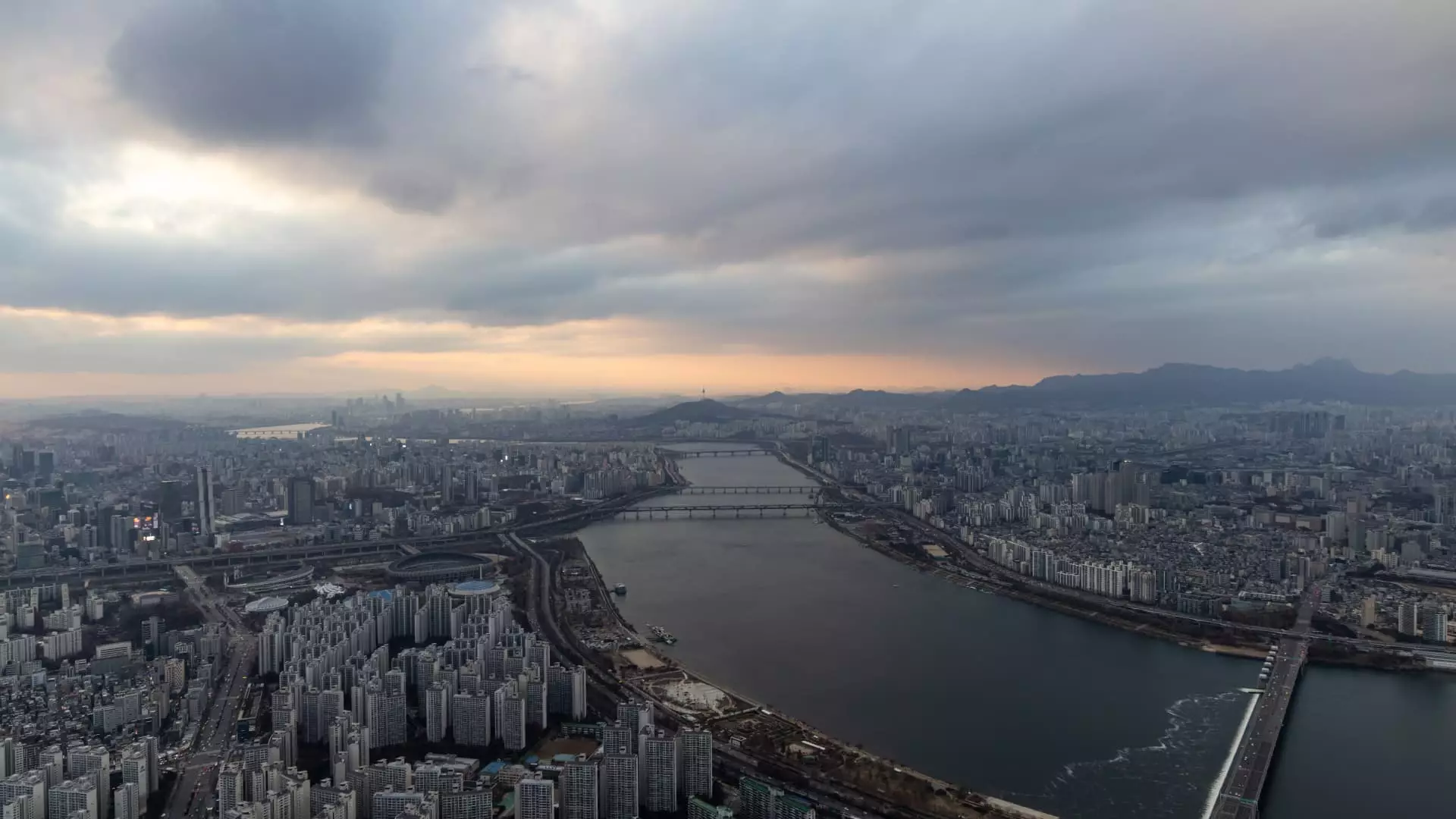In an alarming turn of events, South Korea’s economy has contracted by 0.1% year-on-year in the first quarter of 2025, marking a significant and concerning shift from previous trends. This is the first contraction the nation has experienced since late 2020, a time marked by intense global uncertainties and pandemic-related disruptions. Economic predictions had projected a modest growth of 0.1% as per a Reuters poll, which highlights the unexpected nature of these advanced figures. The stark reversal from a previous growth rate of 1.2% during the last quarter of 2024 raises serious questions about the sustainability of South Korea’s economic health.
The crux of this downturn lies largely within the construction sector, which has plunged by an astounding 12.4% year-on-year. This staggering decline is indicative not only of the challenges faced within one industry but suggests broader systemic issues that could ripple out into other sectors. While critics may argue that short-term fluctuations are commonplace in any economy, dismissing this contraction as merely a blip would ignore deeper issues at play.
The Role of Political Uncertainty
Political unpredictability has played a significant role in destabilizing South Korea’s economic landscape. The impeachment trials of key political figures, including former President Yoon Suk Yeol and Prime Minister Han Duck-soo, have created a fog of uncertainty that hinders both domestic and foreign investment. The soon-to-be-replaced government post elections on June 3rd adds another layer, with potential shifts in policies influencing economic strategies. The reinstatement of Han after a brief impeachment and the subsequent removal of Yoon emphasize a climate of instability that is less than conducive to economic growth.
Economic forecasts by the Bank of Korea (BOK) have amended expectations downwards, suggesting a more pessimistic forecast for 2025, now below the initial estimate of 1.5%. This revision is far from minor; it underscores how intricately linked the health of South Korea’s economy is with its political environment. The expectation of further rate cuts by the BOK further signals anxiety about the economic outlook, making it clear that a reevaluation of current policies and strategies is crucial.
Global Trade Tensions and Their Impact
In addition to local political turmoil, South Korea’s export-driven economy is also grappling with rising global trade tensions, notably with the United States. Despite President Trump announcing a temporary pause on some tariffs, significant tariffs remain on South Korean steel and automotive products. The inability to negotiate favorable trade terms amidst potential uncertainty surrounding the elections exacerbates an already pressing economic situation. How the incoming administration handles trade negotiations will be pivotal in shaping South Korea’s recovery trajectory.
This situation presents a dilemma: while maintaining a robust trade dialogue remains vital for economic recovery, it also necessitates strategic foresight. Institutions like ANZ point out that despite good odds for favorable negotiations, the length of the electoral cycle could prolong the timeline for reaching a solid agreement. The stakes are high, not just for the economy but also for the significant workforce engaged in the export sectors, including key players like Hyundai and Kia, which are crucial to the U.S. market.
Implications for Policy Response
As the data highlights the alarming contraction of the economy, the calls for a stronger policy response have grown louder. The current economic backdrop necessitates talks of fiscal stimulus exceeding 1% of GDP for 2025. Appropriate policy measures are paramount; South Korea’s future economic resilience hinges on its ability to adapt proactively to these challenges.
Policymakers will soon face a choice: engage in reactive measures or adopt a more anticipatory approach to prevent further economic decline. With the BOK indicating potential rate cuts on the horizon, the path forward seems fraught with complexity and urgency. Thus, the collective action taken in the coming months will be pivotal, not just as a stimulus measure, but as a signal of South Korea’s commitment to navigating this turbulent economic landscape.
South Korea finds itself at a crossroads—constrained by both internal political unrest and external economic pressures. The need for coherent and decisive action has never been more urgent as the nation faces the prospect of a prolonged downturn if robust measures are not taken to restore stability and foster growth.

Leave a Reply